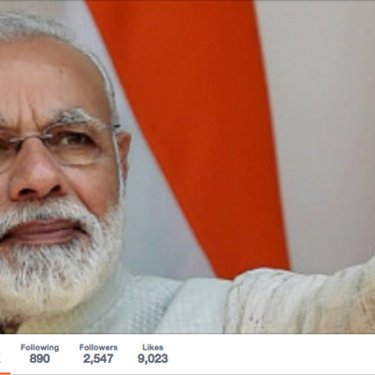India: RSF calls for ban on Hindu nationalist group threatening journalists

Reporters Without Borders (RSF) calls on the Indian authorities to ban a group of pro-government Hindu nationalists who have launched an online campaign against “biased” journalists. RSF also urges the authorities to guarantee the physical and professional survival of journalists threatened by these militants.
This online militia unveiled its existence on Twitter last week, calling itself “India Against Biased Media” and using the hashtag #IABM to recruit volunteers. Its programme – which, at the very least, can be described as radical – is to rid India of “biased or fake” news and to target those responsible.
One of its founders, Vipul Saxena, identified the group’s targets as journalists responsible for “biased content resulting in hurting religious sentiments of people aiming to disturb social harmony.”
In a highly explicit tweet, he added: “If some media kingpin thinks #IABM is shooting the Messenger. Yes we are shooting the messenger but people know we are shooting the ‘One’ who spread lies and fears so deserve this treatment only.”
IABM claims that it is apolitical but a quick look at Saxena’s Twitter profile leaves little doubt about its affinities. His profile displays a large photo of Prime Minister Narendra Modi and Saxena boasts of having Modi among his Twitter followers.
The group says it wants to purge all “anti-national” and “anti-government” content without distinction. IABM’s “vigilantes” subject targeted journalists to online harassment and malicious phone calls, report them to their employers and accuse them of sedition in complaints filed with courts around the country.
Deafening silence
“We call on the Indian government to ban this group, which is openly inciting murder and whose verbal violence against journalists poses a serious threat to their physical safety,” said Daniel Bastard, the head of RSF’s Asia-Pacific desk.
“The harassment of Indian journalists who do not toe the ruling party line is reaching alarming proportions, while the government’s response to this phenomenon is a deafening silence. With less than a year to go to a general election, journalists must be able to express themselves without having to fear for their physical or professional survival. Otherwise, Indian democracy will be nothing more than a distant illusion.”
The online harassment of journalists is particularly disturbing in India, where Hindu nationalists are behind harassment that can lead to murder, as was the case with Gauri Lankesh, a newspaper editor shot dead outside her home a year ago.
The three cases in which IAMB members report filing complaints in the past few days clearly reflect Hindutva, the far-right Hindu nationalist ideology that inspired the ruling Bharatiya Janata Party (BJP). In one of these cases, a score of complaints have been brought against journalists who covered a recent shooting attack on Umar Khalid, a student leader loathed by Hindu nationalists.
In the second case, around 25 legal complaints have been filed against freelance journalist Dhruv Rathee for criticizing the prime minister in a YouTube video. Instead of a journalist, the target of the third case is the actress Swara Bhaskar, against whom a similar number of legal actions have been filed for tweeting a photo showing an Indian army human rights violation in Kashmir.
“Teach a lesson”
This online militia has emerged at a particularly worrying time for the editorial independence of journalists who tackle issues involving the prime minister and the ruling party.
Earlier this month, two senior journalists at the TV channel ABP News – managing editor Milind Khandekar and Punya Prasun Bajpai, the presenter of the current affairs programme Master Stroke – were forced to resign after its executives asked them to avoid any comments or reports critical of the government or prime minister. A third ABP News journalist, Abhisar Sharma, was fired for objecting to similar instructions.
Later, Bajpai wrote an exposé about the circumstances of his departure and the official diktats that preceded it. The TV channel’s management allegedly received pressures from the Ministry of Information and Broadcasting and the BJP apparatus, including jamming satellite signals and the withdrawal of advertising by businesses close to the government. A week before the two journalists were forced out, BJP leader Amit Shah told parliament he was going to “teach ABP News a lesson.”
India is ranked 138th out of 180 countries in RSF's 2018 World Press Freedom Index.



